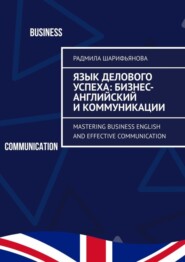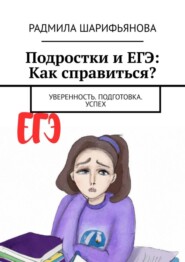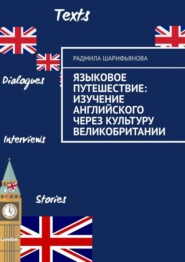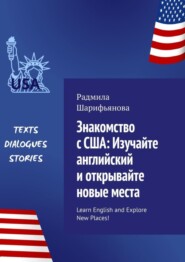По всем вопросам обращайтесь на: info@litportal.ru
(©) 2003-2024.
✖
Интервью на английском: Подготовка к 3 заданию ЕГЭ. Сдай устную часть на максимум!
Настройки чтения
Размер шрифта
Высота строк
Поля
Interviewer: How do you think advancements in technology will continue to shape the future of reading and literature?
Student: _________________________
Interviewer: Have you ever used any online reading resources, such as audiobooks or online book clubs? If so, can you describe your experience?
Student: _________________________
Interviewer: What advice would you give to someone who wants to balance their use of technology with their love for reading?
Student: _________________________
Interviewer: Thank you very much for your interview.
The role of reading in education
Interviewer: Hello everybody! It’s Teenagers Round the World Channel. Our guest today is a teenager from Russia and we are going to discuss the role of reading in education. We’d like to know our guest’s point of view on this issue. Please answer five questions. So, let’s get started.
Interviewer: How has reading impacted your academic performance? In what ways has it helped you succeed in school?
Student: _________________________
Interviewer: Do you think that reading is an important part of education? How can schools encourage students to read more?
Student: _________________________
Interviewer: How do you think reading can help students develop critical thinking and analytical skills? Can you give any examples?
Student: _________________________
Interviewer: Have you ever been assigned a book for school that you didn’t enjoy reading? If so, how did you approach the task of reading it?
Student: _________________________
Interviewer: What advice would you give to someone who wants to improve their reading skills for academic purposes?
Student: _________________________
Sample answer
Interviewer: How has reading impacted your academic performance? In what ways has it helped you succeed in school?
Student: In my opinion, reading has greatly impacted my academic performance. Through reading, I have been able to improve my vocabulary, comprehension skills, and critical thinking abilities. Reading has exposed me to different perspectives and ideas, which has helped me develop a deeper understanding of various topics. Furthermore, reading has enabled me to perform better on exams and assignments as I am able to interpret and analyze texts more effectively.
Interviewer: Do you think that reading is an important part of education? How can schools encourage students to read more?
Student: Yes, I strongly believe that reading is an essential part of education. Reading helps students develop cognitive skills such as language acquisition, comprehension, and analytical thinking. Schools can encourage students to read more by providing access to a diverse range of books, setting aside time for independent reading, and incorporating reading into coursework. Additionally, educators can promote book clubs and reading competitions to create a sense of community and foster a love of reading.
Interviewer: How do you think reading can help students develop critical thinking and analytical skills? Can you give any examples?
Student: Reading can help students develop critical thinking and analytical skills by exposing them to new ideas and perspectives. For example, when reading a news article, students must analyze the information presented and evaluate its credibility. This requires critical thinking skills such as identifying biases and analyzing sources. Additionally, when reading literature, students must interpret and analyze characters’ motivations and actions, which allows them to develop analytical skills.
Interviewer: Have you ever been assigned a book for school that you didn’t enjoy reading? If so, how did you approach the task of reading it?
Student: Yes, I have been assigned books for school that I didn’t particularly enjoy. In such cases, I try to approach the book with an open mind and give it a fair chance. I also try to identify aspects of the book that I find interesting and focus on those elements. Furthermore, I often discuss the book with my classmates and teachers to gain different perspectives and insights.
Interviewer: What advice would you give to someone who wants to improve their reading skills for academic purposes?
Student: My advice would be to practice reading regularly and to read a variety of materials. Reading newspapers, magazines, and even social media posts can help improve reading speed and comprehension. Additionally, using tools such as annotation and note-taking can help increase engagement and retention of information. Finally, seeking feedback and guidance from teachers or tutors can provide valuable insights and strategies for improvement.
Interviewer: Thank you very much for your interview.
The future of readinG
Interviewer: Hello everybody! It’s Teenagers Round the World Channel. Our guest today is a teenager from Russia and we are going to discuss the future of reading. We’d like to know our guest’s point of view on this issue. Please answer five questions. So, let’s get started.
Interviewer: How do you think the way we read books will change in the future? Do you see any new technologies or formats emerging?
Student: _________________________
Interviewer: Will physical books still be relevant in the future, or will e-books become the standard? Why?
Student: _________________________
Interviewer: How do you think social media and online communities will impact the way we consume literature in the future?
Student: _________________________
Interviewer: Do you think that the rise of audiobooks and podcasts will change the way we approach reading and storytelling? How so?
Student: _________________________
Interviewer: What advice would you give to young writers who want to create literature for the future?
Student: _________________________
Interviewer: Thank you very much for your interview.
Sample answer
Interviewer: How do you think the way we read books will change in the future? Do you see any new technologies or formats emerging?
Student: With the rapid advancement of technology, it is highly likely that the way we read books will continue to evolve in the future. We can expect to see more interactive and immersive reading experiences through the use of virtual reality and augmented reality. Additionally, AI-powered tools may allow for personalized reading recommendations and adaptive content based on individual reading habits.
Interviewer: Will physical books still be relevant in the future, or will e-books become the standard? Why?
Student: While e-books have gained popularity in recent years due to their convenience and accessibility, I believe physical books will remain relevant in the future. There is a certain charm and aesthetic appeal to physical books that cannot be replicated by e-books. Moreover, physical books allow for a multisensory experience, such as the texture and smell of the pages, which can enhance the overall reading experience.
Interviewer: How do you think social media and online communities will impact the way we consume literature in the future?











